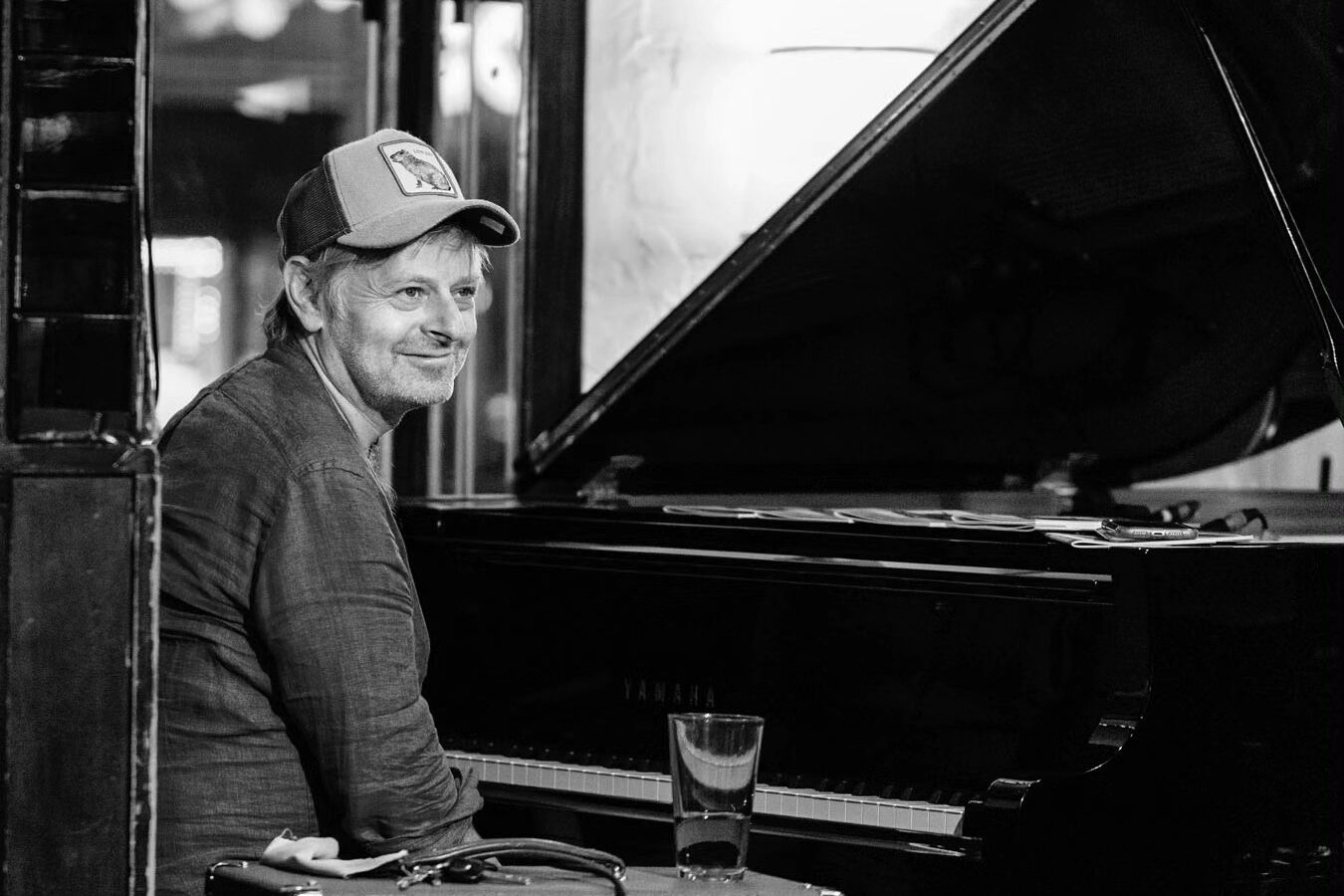Many years ago I heard a song that I thought was written and sung by Van Morrison: the song was “Superior” and it led me to Hugh Christopher Brown’s deep catalog of beautiful original compositions as well as his extensive work with other artists. Brown has performed and recorded with B.B. King, The Tragically Hip, Tom Jones, Ani DiFranco, Joan As Police Woman, Tony Scherr, Barenaked Ladies, and Crash Test Dummies among others. Brown was one of the primary singers and songwriters in the 1980s and 1990s for the Bourbon Tabernacle Choir. When that band broke up, Brown continued performing as a duo with bandmate Kate Fenner. Brown’s songs and playing are adored by those fortunate enough to have heard them and his works have been critically praised around the world. It is astonishing that his soulful sounds have not received more airplay in America.
Brown’s newest release “Pacem 2: Music from the Original Motion Picture Soundtrack 1968” is a magnificent collection of poignant social messages and sonic postcards featuring outstanding musicians including Kate Fenner, David Corley, Sarah McDermott, Suzanne Jarvie, and Tony Scherr.
Brown says, “Every time I look at ’68 — the year of my birth — the upheaval and violent resistance to change is overwhelming. The instrumental which opens the album holds the sense I carry for that time, for which words are inefficient. Martin Luther King, Robert Kennedy, the Catonsville 9, the state murders of Black Panthers, the Chicago 7, Prague Spring, Berlin and Paris movements… it just goes on… the year always felt heavy, and is currently instructive.”
After revisiting Brown’s earlier solo albums “Burden of Belief,” “Oblivion,” and “Pacem (1),” I can say with complete confidence that “Pacem 2” is Brown’s masterpiece. The song structures are so unique and compelling and Brown’s piano playing is so sophisticated and lyrical. There are few albums that are as genre-defying in style and concern. I was reminded of trinkets from everyone from Kate Bush to Curtis Mayfield to George Harrison to Roger Waters to Public Enemy.
The main thread of “Pacem 2” is a comparison of the turbulent period of The Civil Rights Movement to our present condition. The piano and drum duet that opens the album, “1968,” is a processional and an elegy. When I listened to this meditative piece, I felt transported through the ages, as if I were both marching with Martin Luther King and watching the world explode on my iPhone. “Prometheus” is Brown’s examination of not only the human condition but the current states of politics and media. My favorite track is “Your Love,” a powerful pop song in which the narrator comes to terms with discordant expectations and lands on Brown’s transcendental theme of inner light and love.
“Pacem 2” feels so timely today because Brown is imploring us not to be dissuaded by tumultuous political issues, failing institutions, perpetual class and race struggles, the oppression and exploitation inherent in our economic systems, or by incessant misinformation propagated by the media: for the solutions and answers are within us. At a time we are pulled in so many other directions, this album is a rare guided meditation. If you believe that music is a catalyst for healing, then you will love “Pacem 2.”
And not to be constrained by audio alone, Chris is amidst constructing a fascinating visual narrative to accentuate the similarities between 1968 and 2024 – albeit his 2024 persona is both aided and burdened by an Artificial Intelligence device named Norace. You can follow the ongoing story of “Pacem 2: Music from the Original Motion Picture Soundtrack 1968” on Youtube and Instagram



